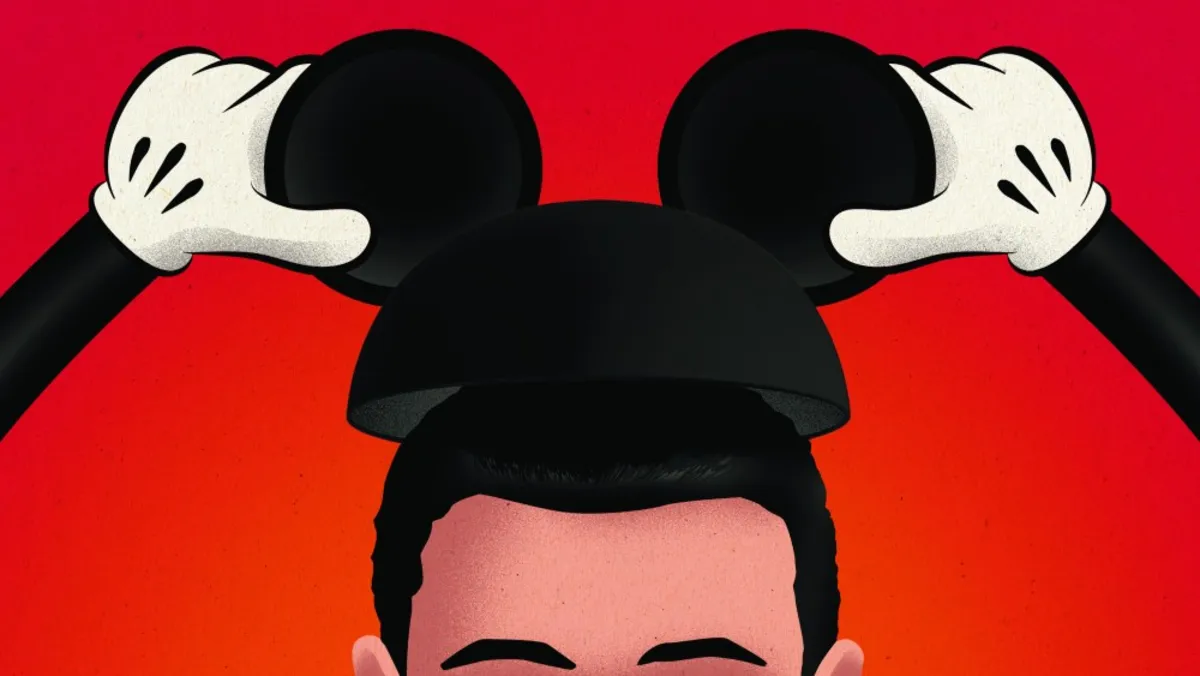
Cinderella and Sleeping Beauty are not the only Disney characters looking for their princes. Recently, leadership at Walt Disney Studios has intensified efforts to engage young male audiences, specifically targeting males aged 13 to 28, often referred to as Gen Z. This demographic represents a crucial segment of the movie-going population, and Disney is actively seeking ways to bring them back into theaters.
Understanding the challenges facing the film industry, Disney has recognized that every studio is vying for ways to convert young audiences into habitual moviegoers. Recent studies highlight that Gen Z men are a particularly isolated group, heavily engaged in gaming and negatively impacted during their formative years by the COVID-19 lockdowns. This makes them a challenging audience for filmmakers to reach.
What is surprising industry insiders is Disney's call for original concepts, aiming to lure this demographic back to the cinema. This initiative comes after years of reliance on their multibillion-dollar franchises like Marvel and Lucasfilm, which have traditionally catered to male audiences of all ages.
Sources indicate that Disney is actively seeking fresh intellectual properties (IP) and pitches, focusing on exciting global adventures and treasure-hunting narratives, as well as seasonal films tailored for events like Halloween. This push comes amid struggles within the Star Wars franchise and a declining interest in superhero films.
While the responsibility for this initiative extends to the highest levels of the company, it primarily falls on the shoulders of David Greenbaum, who was appointed in 2024 to lead Disney's live-action film division. This division has notably lacked male-oriented content, such as the beloved Pirates of the Caribbean franchise, which has been in development limbo for nearly a decade. Insiders suggest that while there are plans for the property, it is not moving forward in its last reported form involving actress Margot Robbie.
The recent attempt to reboot Indiana Jones in 2023, which grossed a modest $383 million against a $300 million budget, further highlights the challenges Disney faces in attracting male audiences. However, Disney sources maintain that the creation of films targeting Gen Z men is a vital aspect of an overarching strategy, although not deemed more urgent than other market segments.
To bolster this effort, Greenbaum has brought on Daria Cercek, a former co-chief at Paramount Pictures known for her work on franchises like Sonic the Hedgehog and A Quiet Place. While some speculate that this move is merely Greenbaum's way of putting his stamp on the live-action division, others view it as a critical response to shifting audience preferences.
Disney's traditional sweet spot has been with millennials, who eagerly consumed classic films like The Lion King and Lilo & Stitch during their childhoods. Today, many millennials bring their children to see live-action reboots of these beloved titles. For instance, this year’s blockbuster Lilo & Stitch over-indexed with male audiences, demonstrating the enduring appeal of nostalgia.
However, Gen Z presents a different challenge. Unlike millennials, this generation does not automatically gravitate towards Disney’s offerings. Successful films like A Minecraft Movie have shown that built-in interest is not guaranteed, and viral trends on social media have fostered communal experiences among young men in theaters. The Gentleminions phenomenon, where Gen Z audiences donned suits and ties for screenings of Minions: The Rise of Gru, exemplifies this shift in audience engagement.
As of 2024, Disney holds a market share for Gen Z ticket buyers that is on par with Sony Pictures and Paramount, representing 10% of the market. However, the company is not relying solely on its film division to capture Gen Z's attention. Concurrently, Disney has invested $1.5 billion in Fortnite, a gaming powerhouse that will incorporate Disney's iconic characters into its universe. However, it appears Disney does not hold movie rights to Fortnite, a potential missed opportunity in attracting younger audiences to theaters.
Despite being the undisputed leader at the box office last year, and expected to replicate that success with upcoming releases like Avatar: Fire and Ash and Zootopia 2, Disney's current strategy to explore new narratives after years of relying on established franchises is noteworthy. CEO Bob Iger emphasized during a recent earnings call that the focus will be on producing original content rather than solely relying on existing IP.
The shrinking audience for superhero films has been widely discussed, particularly following the underwhelming performance of Marvel's Fantastic Four: First Steps, which failed to meet expectations despite positive reviews. Additionally, the Star Wars franchise has not released a new film in seven years, although a big-screen adaptation of the popular Disney+ series The Mandalorian is slated for next year.
A top executive at a competing studio remarked that all film studios need to pursue original content, as the culture surrounding sequels and reboots is becoming increasingly saturated. They noted, “I never thought I’d say it,” reflecting on Disney's challenges despite its vast collection of beloved IP, “but it looks like Disney is going to have to start trying.”